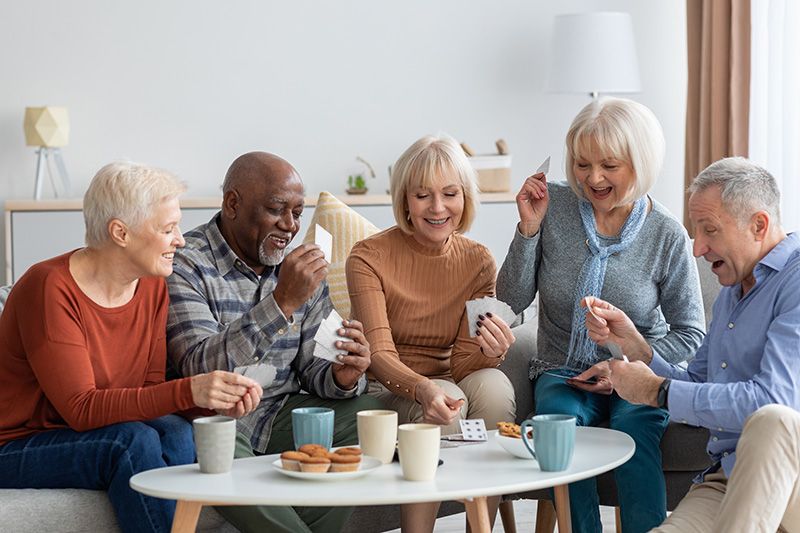Let's Get Social - Your Body Will Thank You for It!

Socialization plays a crucial role in maintaining the psychological well-being of older adults. As people age, they may experience changes in their social networks, such as retirement, loss of friends or family members, or reduced mobility. Engaging in social activities can have numerous positive effects on their mental health.
Here are some psychological benefits of socialization for aging adults:
Reduced Feelings of Isolation and Loneliness: Socialization helps combat feelings of isolation and loneliness that are common among older adults. Regular interaction with others can provide a sense of belonging and connectedness, promoting a positive mood. For example, if you are in your own home, reach out to your new neighbors, take a class at your senior center or organize fun outings for the extended family.
Enhanced Cognitive Function: Social engagement and conversation can stimulate the brain, promoting cognitive functions such as memory, problem-solving, and decision-making. Engaging in discussions and participating in activities with others can help keep the mind sharp and active.The library has amazing events with authors and interesting people. Check out your local library.
Improved Mood and Emotional Well-being: Socializing with friends, family, or participating in group activities can elevate mood and increase feelings of happiness. It provides an opportunity to share experiences, joys, and challenges, which can lead to a sense of emotional support. Why not take the first step and reach out with ideas of fun activities.
Lower Risk of Depression: Regular social interaction can serve as a protective factor against depression and anxiety in older adults. It offers opportunities to share feelings and emotions, reducing the risk of bottling up negative thoughts. Being with people makes us happier!
Increased Self-Esteem and Self-Confidence: Positive social interactions can boost an aging adult's self-esteem and self-confidence. Feeling valued and respected by others can contribute to a more positive self-perception. All your years of experience make for great stories and connections!
Sense of Purpose and Meaning: Socializing often involves participating in meaningful activities, such as volunteering or helping others. This sense of purpose can give older adults a renewed sense of meaning and fulfillment in life. There are so many opportunities to volunteer. Find an organization you love and volunteer!!
Reduced Risk of Cognitive Decline: Research suggests that frequent social engagement may be associated with a lower risk of cognitive decline and neurodegenerative diseases like Alzheimer's. Of all the things on this list, this one is a huge reminder of the health benefits.
Positive Influence on Physical Health: Socialization can indirectly impact physical health by encouraging older adults to engage in more active lifestyles and adhere to healthier habits, such as regular exercise and balanced nutrition. Take an exercise class or join a fitness club!
Sense of Belonging to a Community: Engaging in social activities creates a sense of belonging to a community or group, promoting a feeling of security and camaraderie. We all can use more friends!
Overall, staying socially active and maintaining strong social connections are essential for promoting the psychological well-being and quality of life in aging adults. Encouraging and supporting socialization in older adults can have a significant positive impact on their mental health and emotional resilience. So get out there and have some fun!
